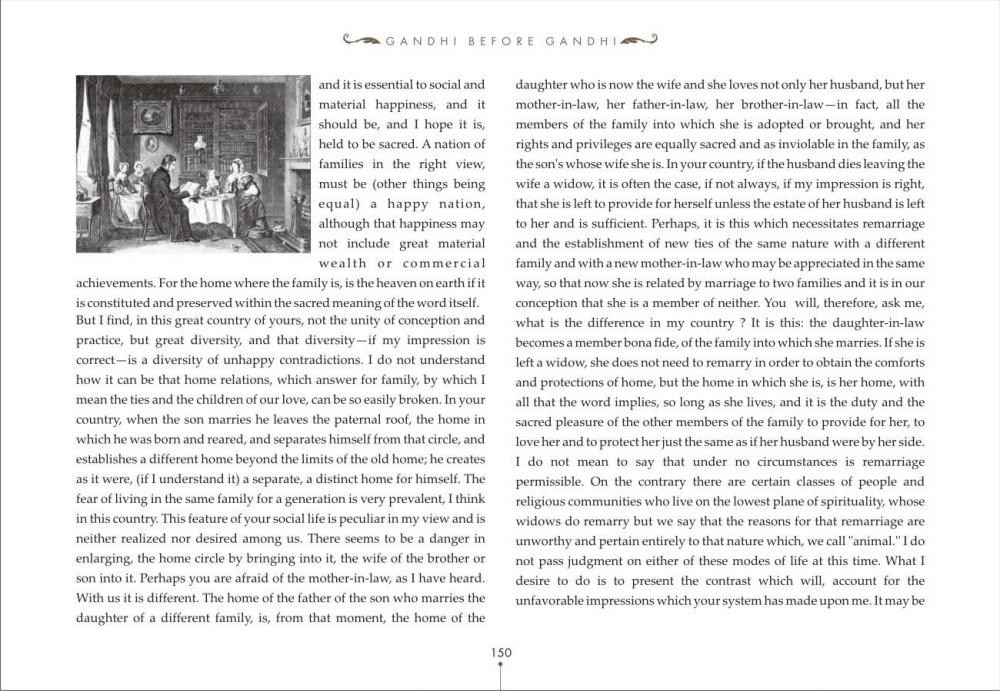________________
A GANDHI BEFORE GANDHI
and it is essential to social and material happiness, and it should be, and I hope it is, held to be sacred. A nation of families in the right view, must be (other things being equal) a happy nation, although that happiness may not include great material
wealth or commercial achievements. For the home where the family is, is the heaven on earth if it is constituted and preserved within the sacred meaning of the word itself. But I find, in this great country of yours, not the unity of conception and practice, but great diversity, and that diversity-if my impression is correct--is a diversity of unhappy contradictions. I do not understand how it can be that home relations, which answer for family, by which I mean the ties and the children of our love, can be so easily broken. In your country, when the son marries he leaves the paternal roof, the home in which he was born and reared, and separates himself from that circle, and establishes a different home beyond the limits of the old home; he creates
sit were, (if I understand it) a separate, a distinct home for himself. The fear of living in the same family for a generation is very prevalent, I think in this country. This feature of your social life is peculiar in my view and is neither realized nor desired among us. There seems to be a danger in enlarging, the home circle by bringing into it, the wife of the brother or son into it. Perhaps you are afraid of the mother-in-law, as I have heard. With us it is different. The home of the father of the son who marries the daughter of a different family, is, from that moment, the home of the
daughter who is now the wife and she loves not only her husband, but her mother-in-law, her father-in-law, her brother-in-law-in fact, all the members of the family into which she is adopted or brought, and her rights and privileges are equally sacred and as inviolable in the family, as the son's whose wife she is. In your country, if the husband dies leaving the wife a widow, it is often the case, if not always, if my impression is right, that she is left to provide for herself unless the estate of her husband is left to her and is sufficient. Perhaps, it is this which necessitates remarriage and the establishment of new ties of the same nature with a different family and with a new mother-in-law who may be appreciated in the same way, so that now she is related by marriage to two families and it is in our conception that she is a member of neither. You will, therefore, ask me, what is the difference in my country? It is this: the daughter-in-law becomes a member bona fide, of the family into which she marries. If she is left a widow, she does not need to remarry in order to obtain the comforts and protections of home, but the home in which she is, is her home, with all that the word implies, so long as she lives, and it is the duty and the sacred pleasure of the other members of the family to provide for her, to love her and to protect her just the same as if her husband were by her side. I do not mean to say that under no circumstances is remarriage permissible. On the contrary there are certain d permissible. On the contrary there are certain classes of people and religious communities who live on the lowest plane of spirituality, whose widows do remarry but we say that the reasons for that remarriage are unworthy and pertain entirely to that nature which, we call "animal." I do not pass judgment on either of these modes of life at this time. What ! desire to do is to present the contrast which will, account for the unfavorable impressions which your system has made upon me. It may be
150




